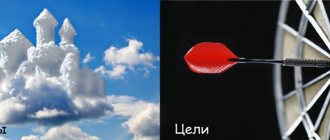Intelligence and nobility are those human qualities that have been glorified by thinkers and artists throughout almost the entire history of Mankind.
Intelligence, as, in fact, nobility itself, is given various descriptions, interpretations and rules of behavior, but the essence itself remains unchanged.
Modern society, which emphasizes the harmonious existence of morality with complete permissiveness, admires erudite and aesthetically educated people.
This is why so many people strive for self-development - after all, the intelligentsia will never go out of fashion.
What is intelligence?
Intelligence is an acquired personality quality, a character trait. It shows that a person is initially ready to communicate within a decent framework. Such an individual is sufficiently educated and cultured.
You can have several diplomas and remain an unintelligent person. This means that intelligence is not always determined by the level of education. But even without it it is difficult to become intelligent.
As a rule, modern people, especially young people, belittle the importance of intelligence. They consider it unnecessary. Young people are sure that this quality prevents them from making their way in life. But this is a mistaken opinion.
A person works on himself and his shortcomings, eliminates gaps in knowledge, improves his cultural level, and studies the rules of etiquette. Only then can he be considered intelligent.
An intelligent person respects society and each individual. It does not disturb the order and does not attract attention to itself. But it is he who manages to achieve the respect of the majority. He creates a reputation for himself as a tactful, well-mannered and delicate person.
One is not born an intellectual, one becomes one. Therefore, everyone can increase their level of intelligence.
It is also worth noting that intelligence is not an indicator of one’s position in society. A person from lower social circles can be an intellectual, but a person with status does not always show his intelligence.
How parasitic words clog up speech
Their harmfulness lies not only in the fact that the use of these meaningless particles of speech makes it sound ridiculous. They can also affect your credibility and thus distract the listener’s attention. But you can definitely get rid of those annoying speech habits. You can start by simply being aware of them. This is something that you can do right now, since it does not require time or material costs.
The most common filler words
Origin of the word intellectual
Let's find out where the word "intellectual" comes from. The etymology of the word is related to the Latin language. Initially, the term “intellegens” meant a knowledgeable and understanding person. This is precisely the direct meaning of the word.
The interesting thing is that Russian people were not familiar with it for quite a long time. In Dahl's linguistic dictionaries there is no interpretation of the concept until 1869.
Subsequent explanatory dictionaries already explain the meaning of the term. In history, the intelligentsia is the educated part of the population that understands culture. An adjective has not yet been formed from it.
Philologist V. Vinogradov finds texts using the concept in Masonic literature of the 18th century. This means that Westerners have already used the lexical item. The word penetrated into the Russian language until the beginning of the 20th century. This is evidenced by the statements of V. Lenin. It is far from a flattering characterization of bearers of this quality.
The politician and revolutionary says: “Intellectuals are vile people. Their speeches sound like a call to action, but in reality they are weak-willed and useless.”
In Soviet times, intellectuals were shown contempt. They were considered physically weak, unprepared to fight, people. But they were still recognized as educated and smart. But in those days, the labor of workers and peasants was more valued. And they certainly weren’t intellectuals.
Nowadays, the word “intellectual” means an educated, intelligent, well-mannered person who is familiar with the norms of etiquette. He speaks correctly, he is trained in manners, he knows how to use cutlery, he understands art, that is, he is a refined nature. Tactfulness and delicacy are characteristic of every intelligent person.
Modern Russian intelligentsia.
Opposition sentiments, widespread among Soviet intellectuals, found an outlet in the late 1980s and early 1990s, when it was the intelligentsia that led the total criticism of the Soviet system, predetermining its moral condemnation and death. In Russia in the 1990s, the intelligentsia received freedom of expression, but many intellectuals faced a sharp decline in their standard of living, which caused their disappointment in liberal reforms and increased critical sentiment. On the other hand, many prominent intellectuals were able to make careers and continued to support liberal ideology and liberal politicians. Thus, the post-Soviet intelligentsia was split into groups with different, largely polar positions.
In this regard, there is a point of view according to which there is no longer any intelligentsia in the proper sense in modern Russia. Supporters of this position identify three periods in the evolution of the domestic intelligentsia. At the first stage (from Peter’s reforms to the reform of 1861), the intelligentsia was just being formed, claiming the role of a scientific adviser to the official authorities. The second period (1860s - 1920s) is the time of the real existence of the intelligentsia. It was during this period that the confrontation “power – intelligentsia – people” arose and the main characteristics of the intelligentsia were formed (service to the people, criticism of the existing government). After this period, the “phantom” existence of the intelligentsia followed and continues to this day: there is no longer any moral unity among educated people, but some Russian intellectuals still strive to fulfill the mission of enlightening the authorities.
In modern Russia, both approaches to defining the concept of “intelligentsia” are popular - both moral and ethical (in philosophical and cultural studies) and socio-professional (in sociology). The difficulty of using the concept of “intelligentsia” in its ethical interpretation is associated with the uncertainty of the criteria by which one can judge whether people belong to this social group. Many former criteria—for example, opposition to the government—have become somewhat meaningless, and ethical characteristics are too abstract to be used for empirical research. The increasingly frequent use of the concept of “intelligentsia” in the meaning of “persons of mental labor” shows that there is a rapprochement between the Russian intelligentsia and Western intellectuals.
In the late 1990s, “intellectual studies” emerged in Russian science as a special area of interscientific humanities research. The Center for Intellectual Studies operates on the basis of Ivanovo State University, studying the intelligentsia as a phenomenon of Russian culture.
Natalia Latova
Who belongs to the intelligentsia?
It is interesting that the explanation of what an intellectual is has changed over time. In Soviet times, this could be called a person incapable of physical labor. It meant that the person was educated and engaged in mental activity. If we talk about what kind of person can be called intelligent in the era of the USSR, then they were equated with teachers, doctors, librarians, cultural workers, that is, all those who did not work in factories, factories, or collective farms.
But the sellers did not find any signs of an intelligent person. This profession was even an antonym of the word intellectual.
One could come across the following expression: “You behave like a market trader.” It implied a noisy, sometimes vulgar personality.
The working intelligentsia are teachers, musicians, artists, doctors. They were an example. They could and wanted to imitate them.
An intelligent person is one who was laconic, chose expressions, and knew how to behave in society. It would be great if he was also educated.
An intelligent person was supposed to serve as a model for growing children. This is the standard of behavior and morality.
To tell a person that his behavior is unworthy, to reproach him, they told him: “Aren’t you ashamed! You are an intelligent person!” But in Soviet times, intelligence served as a sign of inability to live.
For example, no one was surprised by the teacher who did not know how to light a stove or chop wood. She was forgiven for her inability. She was an intellectual, white-handed.
At this time, such a concept as intelligent professions even appeared. Parents mentored their children and dreamed that they would choose an intelligent profession.
It is worth identifying the modern features of an intelligent person. In principle, contempt for the intellectual continues to this day in certain circles. But it no longer manifests itself so sharply.
So, let’s name the signs of an intellectual:
- tact;
- delicacy;
- good manners;
- knowledge of etiquette rules;
- ability to behave in society;
- education.
An intellectual respects the interests of other people, he does not interfere in other people's affairs, he understands where he needs to remain silent and not notice the obvious.
In simple terms, intelligent means brought up in accordance with the era and time. And since the rules of etiquette change over time, the meaning of the concept also changes.
In addition, an intellectual knows how to control himself. He does not give in to emotions, he seems cold-blooded. He does not allow himself to burst out with swear words when he is indignant or in pain. He remains balanced and does not make scenes of jealousy or throw tantrums.
When breaking up with a significant other, many people use expressions such as: “Let’s break up like intelligent people.” This means that the initiator of the breakup expects: quarrels, conflicts, reproaches, meanness, but hysterics will not follow. In this case, we talk about emotional intelligence. An emotional intelligent person does not allow himself to become rowdy. He keeps his feelings and emotions in check.
Perhaps he is very worried, indignant, upset or happy, but it is difficult to understand what is happening in his soul. He does not show anyone what he is experiencing and appears cold and unemotional.
Intelligentsia and intellectuals in foreign countries.
In modern developed countries, the concept of “intelligentsia” is used quite rarely. In the West, the term “intellectuals” is more popular, which denotes people who are professionally engaged in intellectual (mental) activities, without, as a rule, claiming to be the bearers of “highest ideals.” The basis for identifying such a group is the division of labor between mental and physical workers.
People professionally engaged in intellectual activities (teachers, artists, doctors, etc.) already existed in antiquity and the Middle Ages. But they became a large social group only in the modern era, when the number of people engaged in mental work increased sharply. Only from this time can we talk about a sociocultural community, whose representatives, through their professional intellectual activities (science, education, art, law, etc.) generate, reproduce and develop cultural values, contributing to the education and progress of society.
Since creative activity necessarily presupposes a critical attitude towards prevailing opinions, individuals always act as bearers of “critical potential.” It was the intellectuals who created new ideological doctrines (republicanism, nationalism, socialism) and propagated them, thereby ensuring the constant renewal of the system of social values.
Since in the era of scientific and technological revolution the value of knowledge and creative thinking sharply increases, in the modern world both the number of people involved in mental work and their importance in the life of society are growing. In a post-industrial society, intellectuals will become, according to some sociologists, the “new ruling class.”
In countries that are lagging behind in their development, the social group of intellectuals acquires special features. Understanding the backwardness of their country better than others, intellectuals become the main preachers of the values of modernization. As a result, they develop a sense of their own exclusivity, a claim to “higher knowledge” that everyone else is deprived of. Such messianic traits are characteristic of intellectuals in all countries of catching-up development, but they received the most powerful development in Russia. It is this special type of intellectuals that is called the intelligentsia.
Examples of intelligence in life
An intelligent society is spiritually and morally developed. There is no place for conflicts, provocations, intrigues and gossip. Education and intelligence are closely related. A literate and well-read person, using the example of literary heroes, strives to increase his level of intelligence.
Let us repeat the statement: “Intelligent people are not born, they are made.” It is important to devote time to your self-development and education. Comprehensive development increases the chances of becoming an intellectual.
In our life we meet many intellectuals. It's nice to talk to them. They do not leave an unpleasant aftertaste.
The working intelligentsia is represented by teachers, people of culture, doctors, journalists, TV presenters and announcers. Of course, it is not worth saying here that each of them is intelligent. System failures occur. But the qualities of an intelligent person are immediately visible. He does not allow himself to raise his voice or shout at someone who is lower than him in status and social position. An intelligent teacher treats her students with respect. As a rule, children love and appreciate her.
Life is often difficult for intelligent people. It seems easy to offend them. They are vulnerable and do not know how to stand up for themselves. But society should value such individuals and look up to them.
An intellectual knows how to put himself in a person's position. He tries to understand the motives of the action; he will not allow himself to judge, much less do it behind his back.
Representatives of the Russian intelligentsia have been known to us since our school years. These are outstanding figures of science, literature, and art. As an example, we can cite A. Tchaikovsky, A. Solzhenitsyn, M. Lermontov.
Of course, I'm not encouraging you to become a writer or musician. But your behavior and actions should leave a pleasant impression of you. Then those around you will say: “what a most intelligent person!”
Definition of the concept
Intelligence (translated from Latin means thinking, understanding) is a set of qualities of an individual that meets the expectations of a cultural society. There are also other definitions of this concept.
- The ability to think, the ability to make independent judgments about the universe, about the manifestations of human actions.
- Tolerant character, nobility, intelligence and reliability of words.
- A combination of a hard-working mind, a noble soul and a truthful heart.
- The ability to understand, accept everything new, always respect the opinions of other people, demonstrate your emotions, and not allow interference in the personal space of another person.
- The ability to withstand rudeness, uncultured behavior, and fight back against injustice. Such an individual has high moral values and a developed sense of nobility.
You need to know what advantages intelligence has:
- allows you to show emotions and gain new knowledge;
- gives freedom, allowing you to express your thoughts;
- an intelligent person can understand the meaning of the common good;
- rewards with strength to resist evil injustice and rude civilization;
- confidence in one's strengths and capabilities, self-belief;
- An intelligent man or woman has the opportunity to show interest in life and be friendly to the people around him.
Is intelligence necessary in the modern world?
Let's summarize and establish why modern people need intelligence. First of all, we will be able to avoid conflicts, clashes, envy, and gossip.
We will learn to respect each other, we will be lenient towards the small shortcomings of others, and therefore we will become more tolerant and kinder.
Intelligent communication produces excellent results. It is not necessary to shout and push in line; you should watch your speech, learn to ask and respond to requests.
Many children and teenagers lack intelligence. They don’t consider it necessary to say hello, they are rude to teachers and parents, and they stoop to sorting out relationships with each other using their fists. They are not educated and are unlikely to become intellectuals.
Parents, by their example, need to teach the younger generation to do without rudeness, not to film a person who needs help, but to help him.
Unfortunately, there are very few examples of intelligence. Bloggers filming themselves in front of shrines, making fun of old people, do not serve as role models.
If you consider yourself an unintelligent person, then it’s time to become one. Take control of yourself and change your behavior and attitude towards life.
How to become an intellectual?
How to behave intelligently? First of all, you need to study the rules of behavior in society. Take time for your upbringing and self-development. It’s not for nothing that they say that you need to develop intelligence in yourself. This is a quality acquired over the years.
Follow these rules:
1. An intelligent person strives to understand the motive of someone else's action. He does not stoop to judgment and gossip.
2. He is demanding of his shortcomings, strives to eliminate them, but shows tolerance for the shortcomings of other people.
3. An intellectual is modest. He does not behave defiantly, aggressively, or provocatively. He is unobtrusive, punctual, polite.
4. An intellectual is tolerant. He understands that people are equal, regardless of skin color, sexual orientation, status, social and financial status. He respects both the child and his peer, and the older, elderly person.
5. The intellectual supports international views. Nationality does not in any way affect his attitude towards a particular person.
Read classical literature, observe the behavior of respected people, adopt their habits, be tolerant of people, but do not become narcissistic, do not become proud. Then they will say about you that you are an intelligent person.
How to recognize an intelligent person?
The signs of intelligence are quite specific. So, from the first words spoken by a person, you will hear logical, literate speech, decorated with aphorisms. His education is predominantly higher. Behavior is reserved, but sincere, a wonderful sense of humor.
Good manners are a mandatory sign of an intelligent person. At the same time, he refrains from condemning the behavior of others until he knows their motives.











